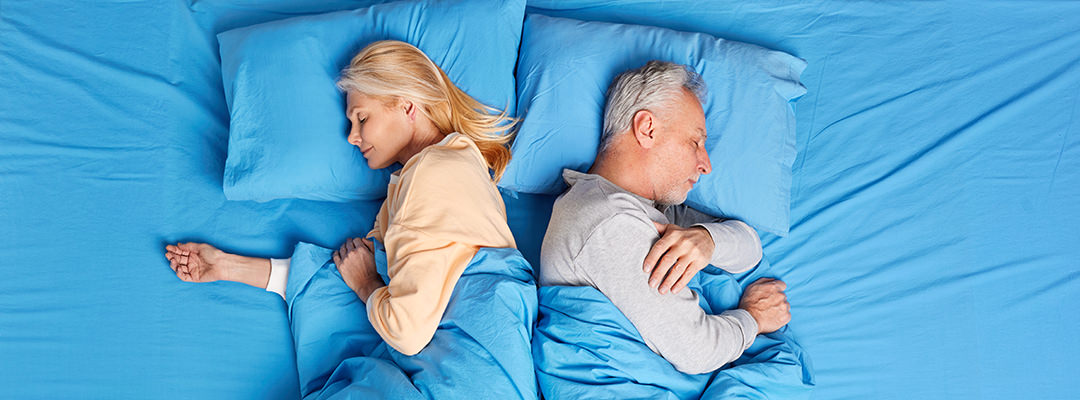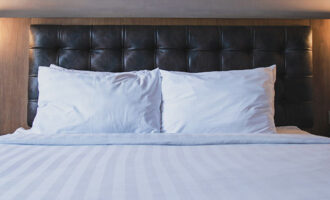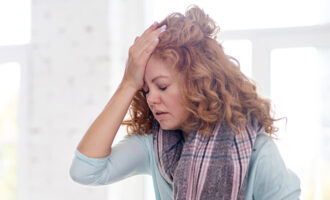We all know that sleep is an essential part of our daily health. It keeps our bodies strong, keeps our minds sharp, and contributes to our emotional well-being. But what about when we start getting older, and our bodies aren’t as reliable as they used to be?
Good sleep health becomes a struggle as we age. This can have a huge effect on our physical health, our cognitive ability, our ability to enjoy life, and our relationships with others. Let’s look at why sleep matters so much as we get older and how we can get the best possible benefit from our sleep later in life.
Why do our bodies need sleep?
Sleep is an essential process that allows our minds and bodies to regenerate each night. Healthy sleep supports our immense system, fighting off illnesses and infections as well as allowing our brains to function at their best. This helps support our memory, ability to concentrate, and ability to process new information. If you don’t get enough sleep, your brain will have a harder time understanding input from its environment as well as retaining that information later on.
Sleep also supports areas of the brain that deal with emotional balance and well-being. Getting enough sleep is essential for your mental health and the way you function on an emotional level in your day to day life.
Most adults need between seven and nine hours of sleep each night. Children and teenagers need more as their bodies are in a constant state of growth and renewal. When we get enough sleep at night, our bodies and our minds are able to take care of us and heal us in the best possible way.
What happens to our sleep as we age?
So we know how important sleep is to keep us operating at our very best. But what about when our bodies begin to decline? After a certain point in our lives, our bodies and our minds begin to slow down and to become less efficient than they were in our youth. Let’s explore some of the things that happen to our sleeping lives as we get older.
Shifting sleep patterns
As we age, the time when our bodies are most predisposed to sleep actually slips backwards. This is why teenagers often feel their best when they stay up late and sleep late into the day. It’s not because they’re lazy — it’s because their circadian rhythm, or internal clock, is wired later than that of adults.
As we progress towards old age, our circadian rhythm shifts back even more. This means that elderly people often feel tired earlier in the evening and wake up earlier in the morning. Fortunately for us, this is the type of sleep schedule most favoured by society — very often people’s work schedules involve getting up early in the morning.
The bottom line? If you’re able to, try to be mindful of what your body is telling you and sleep during the time that makes you feel most rested.
Wake up more often
Older adults might find it harder to fall asleep and stay asleep than they did when they were younger. In general, elderly people wake up several times throughout the night. This is because as we age, we begin to spend less time in the deeper REM sleep and more time in the lighter NREM stages of sleep. It’s during these NREM sleep stages that we wake up more easily. Our brains are more aware at this time, so we might be woken up by another person moving around, by outside noises, or by physical needs like hunger or the need to use the bathroom.
In addition to waking up more often, spending less time in the REM state also means that we don’t always get as much benefit from our sleep. Our sleep doesn’t feel as restful or as satisfying, and we might still be tired even though we’ve slept for a cumulative eight hours.
Longer recovery from sleep changes
The shift in the circadian rhythm of older sleepers also means it can take them longer to adjust to changes in their sleep schedule. These are things like adjusting to a new time zone, to daylight savings time, or new priorities that keep you up later or force you to wake up earlier. You might find that you need to be gentler with your body and give yourself more time to adjust than you used to.
The same is true for unfamiliar environments. If you’re staying at a hotel or a family member’s place, or even if you’ve needed to replace your bed or mattress, you might find that it takes longer to adjust to the new surroundings.
More tired during the day
It will come as no surprise that older people often feel more tired during the day. Largely this is because your bodies need to work harder to do the same things that they’ve always done with less effort. It’s also because you’re spending less of your time in the deep REM sleep stage, so your nights will no longer be as restful.
At the same time, you’ll probably be waking up more often and will have more trouble settling into a comfortable, healthy sleep. With so many interruptions, it’s no wonder that your body doesn’t feel as regenerated as it should. Always listen to your body and try to go to sleep when you feel tired, even if it’s earlier than what you’re used to. We’ll look at some more tips for getting the most out of your sleep below.
Become more prone to sleep disorders
As your body begins to wind down and you’re not sleeping as deeply as you used to, you might find yourself becoming more susceptible to disorders like:
- insomnia, or the inability to sleep for more than short periods of time;
- sleep apnea, or difficulty breathing as you sleep, which leads to snoring and jolting awake;
- narcolepsy, or extreme drowsiness in the middle of the day;
- REM sleep behaviour disorder, in which your body loses the ability to self-paralyse during REM sleep and causes you to react physically to your dreams;
- restless leg syndrome, which causes involuntary movements in the feet and legs while sleeping.
While these disorders can affect people of any age, they’re most commonly found in older adults.
How much sleep do older adults need?
It’s been said that we need less and less sleep as we age in order to stay healthy. This is entirely a myth.
On the one hand, it makes sense why people may have once thought that — after all, if that average young adult needs eight hours of sleep but a newborn baby needs between twelve and seventeen hours, surely an elderly person must need a lot less? Sadly, it’s not so simple. Adults of any age over about twenty years old should be getting between seven and nine hours of sleep each night.
Because elderly people are at a particularly high risk for a whole range of physical and mental illnesses, it’s especially important that older adults get their full seven hours of sleep, minimum, to keep their bodies functioning at their very best. This keeps us safe and ready to take on what the day has to throw at us.
Tips for healthy sleep as you age
No matter what age you are, you want to try and get the best sleep possible so you can take care of your health. Here are a few things to keep in mind so that you can sleep better during the night.
Try light exercise during the day
Regular exercise has been shown to help older people fall asleep faster, stay asleep for longer, and get a deeper, more enriching sleep. This can be something like aerobics, dancing, or even just a walk around your neigbourhood. You might even consider joining a group exercise activity, which will enrich your mind and soul as well as your body.
Relax your mind and body before bed
For the best possible sleep, try to find a consistent way to wind down each night before bed. This might be something like curling up with a good book, sipping a cup of (caffeine-free!) herbal tea, writing in a journal, or speaking with a loved one on the phone. Try to find something you can do each night to create a safe, familiar rhythm as you relax before you sleep.
Reduce distractions in the bedroom
Your bedroom should be a place of peace and rest. Try to keep your work life separate and remove anything that is going to stress you out or make you worry about your day-to-day tasks. Instead, fill the room with things that make you feel safe and relaxed and able to set aside your cares until the next day.
Avoid sleep-adverse substances
Things like caffeine, alcohol, and cigarettes aren’t doing you any favours at any age, and they’re especially not helping you get the most out of your sleep. Try to limit these sleep-inhibiting substances to the early part of the day, at least five hours before you go to bed. Even though alcohol and tobacco might make you feel sleepy in the short term, they’re more likely to cause you to wake up during the night and to damage the quality of the sleep you do manage to get.
Maintain a healthy sleep schedule
You’ll be doing the best by your body if you can get yourself into a consistent sleep rhythm. This means going to bed at the same time each night and waking up at the same time each morning. See if you can develop a nighttime routine that begins and ends at the same time each night, making you feel comfortable and ready for a long, happy, recuperative sleep.
Keep a light and a phone by the bed
Unfortunately, nighttime hazards become a much bigger risk as we get older; small injuries that we would have shrugged off in our youth suddenly become serious concerns. Keep a light nearby, whether that’s a phone or a table lamp, so that you won’t end up wandering around in the dark if you need to get up in the night. Likewise, having a phone close by is useful for safety in case you’re ever in a difficult position and need to phone a loved one for help. By keeping these things nearby, you minimise any risks you might encounter through poor sleep.
Getting older isn’t fun for anybody, and ageing can have a serious impact on your sleep health. However, being aware of the changes your body is going through and the associated risks will help you be better prepared to deal with them and take steps to get the best sleep possible. Your body, your spirit, and your loved ones will thank you.
Did you like it?4.6/5 (27)





